Coffee is the most unanimously enjoyed beverage in the Western world.
So how many are there calories in coffee? You’re going to laugh, I swear you are. With that, it’s also more studied and scientifically complex than anything else that we drink.
In a single eight-ounce cup of coffee, there is one calorie. Yes, just a single calorie. Coffee is a myriad of different B vitamins, some fats, and a bit of oil that your body digits with great ease.
Let’s review the full profile of coffee’s nutritional value, and discuss what makes up the calories in your morning brew.
Nutritional Value
Coffee is a fairly complex beverage that consists of multiple B vitamins.
Let’s break down each component of coffee, from caffeine to protein (yes, it’s in there), and dissect America’s favorite beverage.
Caffeine
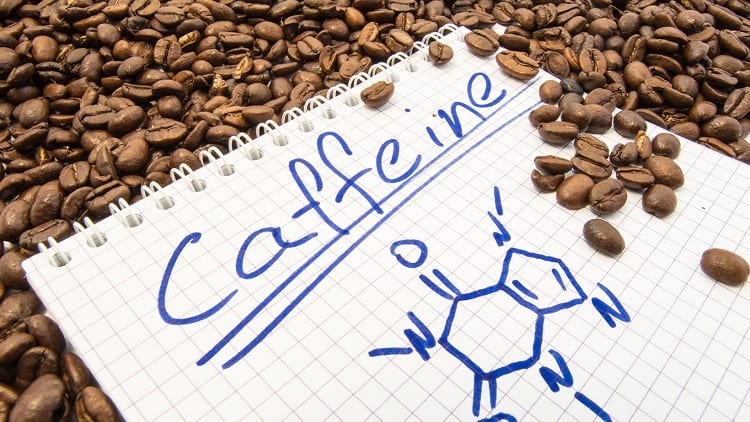
Caffeine is the big one. An eight-ounce cup of coffee contains approximately 95mg to 125mg of caffeine.
This varies depending on the roast, the origin of the beans (what coffee cherry plant they come from), and other factors.
Caffeine is a natural stimulant that can compress blood vessels, increase focus and attention, and incite the feeling of adrenaline when taken in high concentrations.
Caffeine is water-soluble, meaning it goes through your system quickly, but it passes through nearly every muscle in your body depending on how much you consume.
Protein

Protein is a basic building block of life. Unfortunately, coffee only contains 0.3g per eight-ounce cup, which doesn’t even meet 1% of your daily recommended intake.
Even for a sedentary adult woman with a low BMI, it’s not even 1% of your daily protein intake.
Daily protein is essential to survival, but you should never expect a viable amount from your coffee.
Sodium
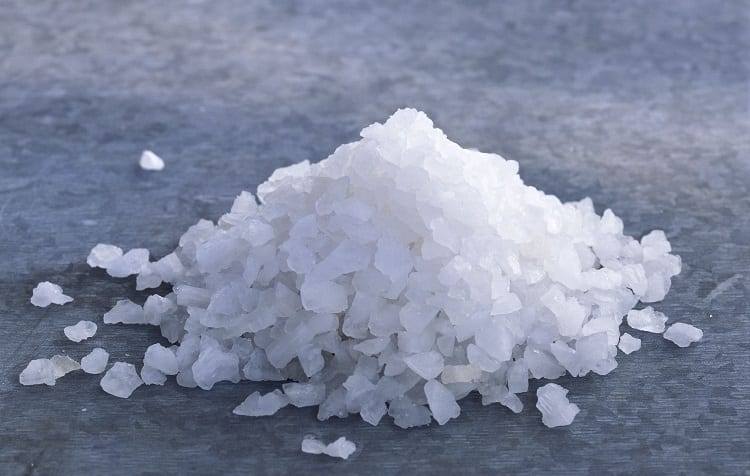
Sodium is another essential part of human life and can be found in things that you don’t even expect, much like coffee.
There’s a total of 5mg of sodium in coffee, and just like protein, that doesn’t even meet 1% of your daily recommended intake.
According to the FDA, you should not consume more than 2,300mg of salt per day, meaning you would need to consume 460 cups of coffee just to meet your daily limit.
This isn’t a factor of coffee that you will ever need to worry about, even with a sodium sensitivity.
Potassium
Potassium is a mineral that everybody needs, and some need it more than others.
You get about 116mg from an eight-ounce cup of coffee, which meets about 3% of your daily criteria.
This isn’t the main source, but two or three cups of coffee a day could at least jump-start your potassium intake.
If you eat low-potassium foods, this could help fortify the amount you’re consuming to bridge the gap.
Magnesium
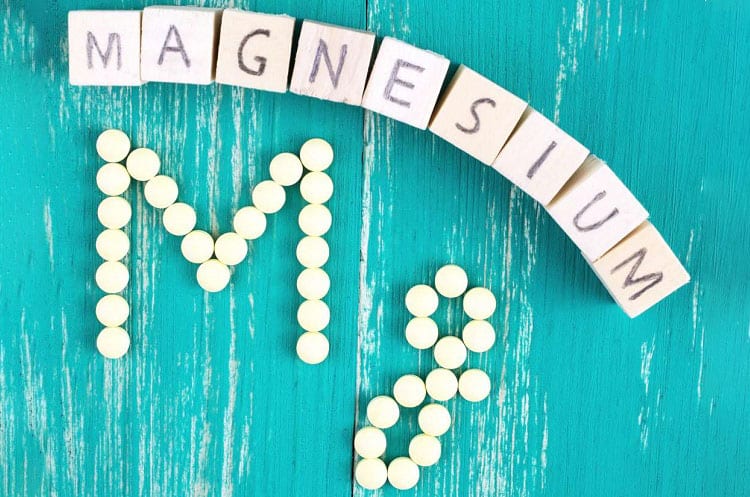
Coffee contains about 1% of your daily intake of magnesium, meaning it’s not a critical source of this mineral.
This varies from coffee blend to coffee blend, but since you need about 320mg of magnesium per day, it’s safe to assume you’re not going to get it from coffee.
Magnesium aids your heart health, which is why coffee is considered a healthy drink option.
Pantothenic Acid (Vitamin B5)

B5, also known as pantothenic acid, is water-soluble just like caffeine. This critical vitamin assists your body in the breakdown of protein, carbohydrates, and fats.
It is essential for stomach acid and liver function.
In your morning cup of coffee, you get 5% of your recommended daily amount of B5, meaning if you’re a four-cups-a-day kind of person, you’re getting a decent amount of B5 just from drinks alone.
Niacin (Vitamin B3)
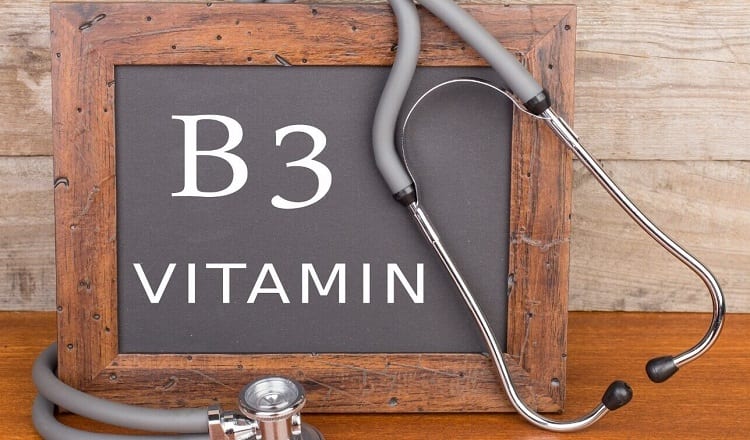
There isn’t a super high amount in this one though.
You get 2% of your daily recommended intake of B3 from coffee, meaning that even if you drink a lot of coffee, it’s not going to make a major impact on your health.
B3 helps to fight symptoms of arthritis, while also aiding the function of your brain, and lowering cholesterol all in one fell swoop. It’s a ridiculously essential part of your daily diet.
Riboflavin (Vitamin B2)

Much like vitamin B5, riboflavin helps to break down fats, proteins, and carbohydrates in your body.
It’s added to a lot of foods in other countries because it’s a necessary part of everyone’s bodily functions, but you get more in your daily cup of coffee than you might think.
Every eight ounces of coffee has 11% of your daily recommended intake of riboflavin in it, meaning if you’re a four-cups-a-day person, you have nearly half of your intake from your morning cup.
Thiamine (Vitamin B1)
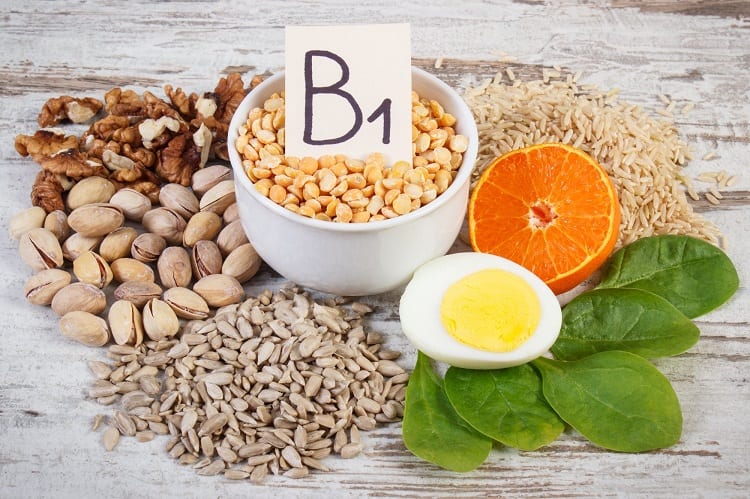
Thiamine is just like niacin in its percentage in coffee.
You only get 2% of your recommended daily intake in coffee, and much like other B vitamins, it’s used to help break down carbohydrates.
This is essential, but it also doesn’t break down fats or proteins.
One of the reasons you’ve seen a large increase in gluten allergies over the last ten to twenty years is because most of America is deficient in B vitamins.
Coffee is more nutritious than you might think, especially when you look at studies that talk about drinking black coffee and avoiding additives, and why it’s good for your heart if you have it in moderation.
There’s more to its chemical makeup than meets the eye, so while we can break down and identify B vitamins and protein, there’s more at work in the background when you’re drinking coffee.
Coffee is also linked to lowering your chance of Alzheimer’s and dementia by up to 65%—a noticeable amount.
How Many Calories in Coffee?
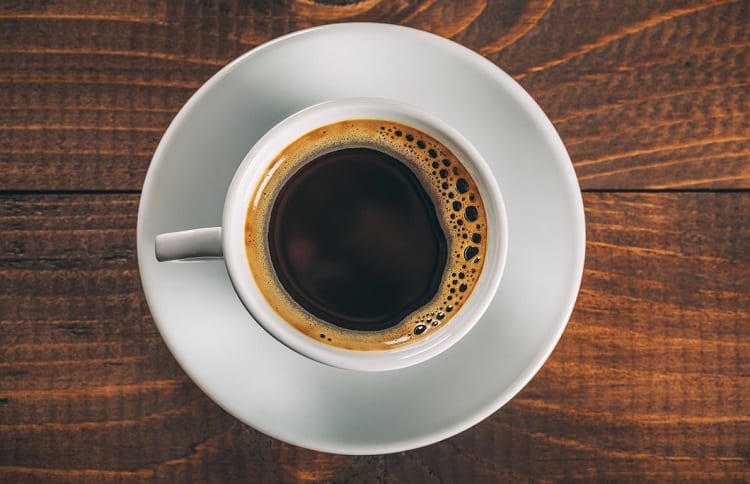
Regular coffee, being black with no additives whatsoever, is just one calorie for eight ounces. That means that in every ounce, there’s 1/8th of a single calorie.
You could have a large iced coffee, which is 32oz, and you’re only going to end up with a whopping four calories. That’s a lot of caffeine intake, but it’s not going to add anything to your waistline.
Coffee With Milk
If you add two ounces of milk to an eight-ounce cup of coffee, it goes from one calorie to 37 calories.
That’s not a huge jump, but there are carbohydrates to consider, which will convert to sugar in your system.
You can feel relatively guilt-free about milk in your coffee, but just know that it still masks the benefits of coffee ever so slightly.
Coffee With Cream
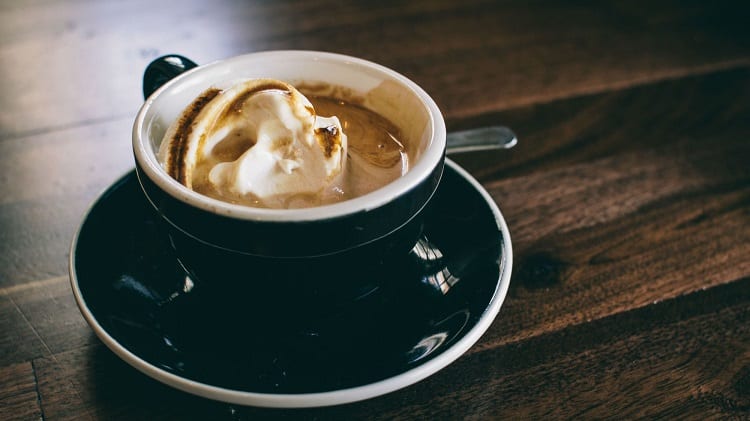
For an eight-ounce cup of coffee, the most common amount of cream to put in it would be about two ounces.
One ounce just doesn’t cut it, but based on fats and sugars, you have a ton of calories in cream.
That eight-ounce cup of coffee that was just one calorie is now 117 calories—116 calories from cream.
While cream doesn’t commonly have sugar in it, the amount of carbohydrates in two ounces is two grams, which converts to sugar in the body.
Just because there isn’t added sugar doesn’t mean it isn’t present.
It may not seem like a lot, but just one cup of coffee is 1/17th of your daily recommended caloric intake (based on an average diet of 2,000 calories).
You’re probably not going to just have one cup, so it’s going to be more like 2/17ths of your daily diet. That’s a lot for a drink.
Espresso
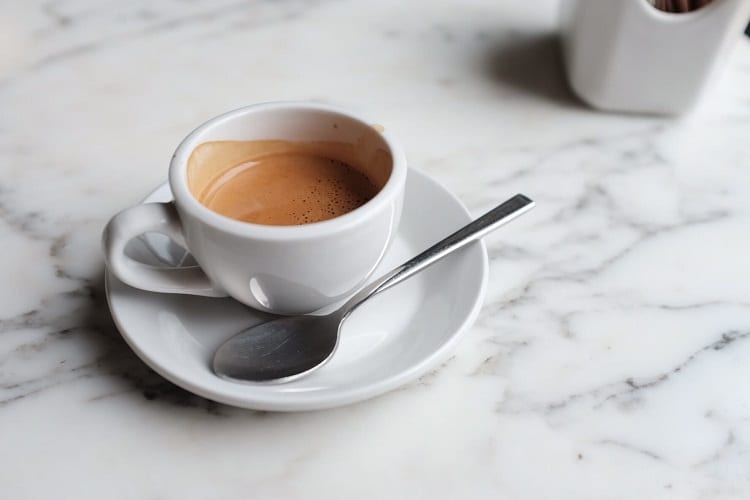
Espresso has more calories than coffee, but don’t worry, it’s not by some surprising amount.
A standard cup of coffee is eight ounces, and a standard shot of espresso is only two ounces.
Through pressure and heat, espresso is like a concentrated form of coffee, so since it’s extracting all that goodness it’s no wonder that the calorie content would be a bit higher.
Three calories. Just three calories in a single shot of espresso, meaning even if you had three shots of espresso throughout the day, you haven’t even had 1% of your daily recommended caloric intake.
Enjoy Coffee Guilt-Free
By itself, coffee is a low-calorie drink that you don’t have to feel bad about drinking.
You could have multiple cups per day, if that’s what you wanted, so long as you don’t drink it with any dairy or sugar in it.
That’s where all the calories in most coffee come from.
When you drink coffee without anything in it, you’re supercharging all the health benefits right into your system without having to fight through fats associated with cream and milk.
Let the natural fats in coffee be absorbed by your liver, and the B vitamins do their work. When you drink black coffee, it has the most benefits and fewest calories of any morning beverage.